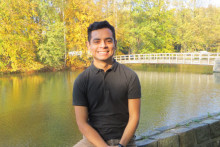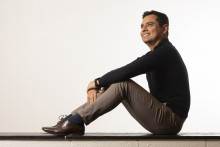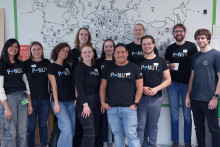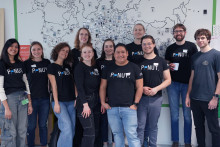Personal experiences can greatly vary, and therein lies the challenge
First of all, I would like to affirm that my own personal story is very similar to Diana’s and in several aspects also different to what the Include-U qualitative study reports. In other words, I have also had mostly positive experiences during my time in the UT, both generally but also in terms of inclusion. That being said, Diana was astonished and in disbelief about some of the statements that I made for the U-Today article. Because of that and the possibility that others feel the same way, I am motivated to address her comments in this manner. On top of that, due to my former involvement in the Include-U team and the P-NUT board, I think I am able to dispel her concerns.
Regarding the communication of the findings, I would like to signal that in the U-Today article a hyperlink is provided to a more detailed summary of the results. Thus, I encourage interested readers to check out both sources, simply because they are complementary and share the same aim: to sensitize doctoral candidates about the inclusivity of our community. Yet, no matter what emotional reaction they might cause, I totally stand behind the messages conveyed by the U-Today article. I believe that we faithfully displayed the knowledge we have collected so far. Now, in all fairness, I believe that Diana is right in presuming that the reality might be brighter than what some findings of the study seem to suggest, especially if they are interpreted in isolation, or are mistakenly assumed to be an absolute depiction of the reality.
I would argue that one person's view does not invalidate the ones from twenty
I would argue that one person's view does not invalidate the ones from twenty. However, if anybody has additional, systematically-collected data about the experiences and perceptions on inclusion from 20, 50, or any number of doctoral candidates of the UT, please come forward and permit us to contrast those with our own data and conclusions. This would greatly help us reach the goals of the Include-U project, which are to understand and support the inclusivity of the UT.
The Include-U project was actually proposed under the premise that there were no recent and comprehensive data that could help us identify the most pressing issues that hinder the inclusion of international doctoral candidates at the UT. From that perspective, I honestly find some of Diana’s rebuttals to our study to be unfair or ill-informed. For instance, at several points her article refers to the study as a ‘survey’ even though it was clearly stated that so far the research consisted of interviews and that a larger survey will follow. I wonder now if some readers might have missed the link to the summary itself or the introductory page of the project, which is also hyperlinked in the U-Today article. Anyhow, I take it as a good sign that the U-Today article by itself was able to awake and carry such a passionate response. I do not think it is necessary to go over each and every question or remark in Diana’s article, but for those still interested I will try to address the ones that I found most important below.
What was actually done and found so far by the Include-U research?
The research found and the summary reports on both positive and negative aspects of inclusion. The summary states, among other things, that all participants ‘commended the UT’s efforts on diversity and inclusion.’ Therefore, I believe that the ‘key ingredients’ referred by Diana actually do echo what the research participants expressed.
By and large, I dare to presume that one of the most important results of the research is the identification of 24 factors that were deduced from the interviews as facilitating or limiting ‘ingredients’ for inclusion. The factors are dialectic: the same factor may have positive impacts on some doctoral candidates while at the same time may have negative impacts on others. Moreover, our analysis collapsed these factors into three major levels: personal level factors, group level factors, and institutional level factors.
Certainly, these findings should not be assumed to be the absolute reality
Certainly, these findings should not be assumed to be the absolute reality. We explicitly caution against that in both the U-Today article and the summary. That is also why I do not agree with Diana’s wording that the U-Today article ‘merely’ quotes a study involving twenty persons. To support our claims the summary tries to convey, in a concise manner, the steps that were taken to ensure that our findings would be meaningful given the aims of the project, representative of our community, and also unbiased by the overarching impacts of the Covid-19 pandemic.
Share, discuss, and help us improve the inclusivity of the UT!
All in all, I welcome Diana’s questions and critical commentary. I love that she was motivated to share her ‘side of the story’ and found a way to do so. I hope that others do the same. I believe that we must normalize these conversations, and that doing so will benefit our community. Diana’s experiences and mine are on the same positive side, but as she acknowledged, that is only one part of the story.
Do you feel triggered by some of our claims? Please communicate your concerns to P-NUT ([email protected]).








